
Imperial Tobacco has warned that if the government proceeds with its plan for a generational smoking ban, it will damage retailers’ businesses and fuel the illicit trade.

Speaking to Convenience Store ahead of the Second Reading of the Tobacco and Vapes Bill in the House of Commons, head of corporate & legal affairs, UK & Ireland at Imperial Brands, Lindsay Mennell Keating, warned that the plans would have “dire consequences” for retailers.
“We’re not supportive of any generational smoking ban and for a number of reasons. We have been actively working with retailers and the retail trade to put forward ours and the retailers concerns to the government about the policy proposals.
“We think it will have some quite dire consequences, particularly for traders, and we’re working with the government to find a way that actually we can get a policy that is workable for retailers too.”
Instead of the age of sale for tobacco products being raised every year until phased out, Imperial Tobacco suggests raising the age of sale by three years to reduce youth access.
“We don’t think that a generational smoking ban will work, but there are things that could work, such as raising the age of sale from 18 to 21,” she said. “It would achieve the government’s aim of reducing smoking among young people, and it would be much easier and simpler for retailers to implement in their stores and their staff to implement in their stores. And also, it’s straightforward. As a policy it doesn’t require an awful lot of change to the regulations.”
‘No evidence’
She warned that there is a reason for similar measures not proceeding anywhere else in the world. “[The government needs to] assess and rethink. There’s no international evidence. There’s no real world evidence of a generational smoking ban working. New Zealand has repealed and it doesn’t exist anywhere else.
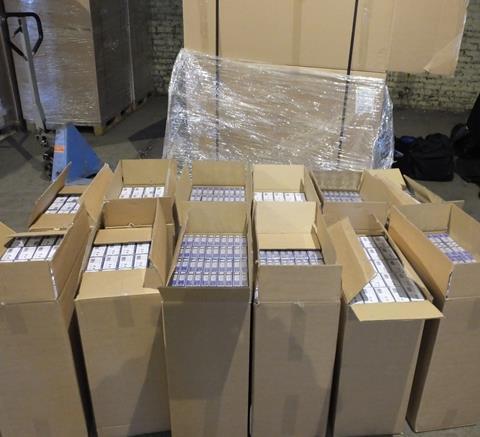
“Prohibition doesn’t work, and any prohibition of any product will inevitably lead to an increase in the illicit trade. We’re concerned that that will happen in the UK. New Zealand cited that as a possibility for them when they proposed it [the generational smoking ban], and you have seen that New Zealand has since repealed the legislation, so we do urge the government to rethink the policy because the impact on retailers as a result of the illicit trade, which is already booming in the UK, is going to be significant.”
When New Zealand announced its plans to repeal the legislation, the UK government said it was proceeding with its plans, which Mennell Keating feels is a mistake.
“The government has said it still plans to go ahead regardless of what New Zealand government has done. I think that’s unfortunate. I think they should really look again and rethink the policy. When you ban a product, there will be fewer receipts into the Treasury and most likely people will move to the illicit trade where it’s already cheaper and unregulated products are sold to people and that won’t stop. That’s only going to increase.”
Mennell Keating also cited abuse against staff as a potential by-product of the measures. “It can cause all sorts of difficulties with retailers and their staff. Having to know when to age verify a customer. And if customers are not carrying photo ID, that could lead to conflicts. You may well have customers who are abusive to shopkeepers and their staff as a result of being asked for ID.”
Commenting on the government’s impact assessment of the Tobacco and Vapes Bill, Mennell Keating said it underestimated the cost to the supply chain, including retailers. “The impact assessment is lacking and significantly underestimates the cost to businesses, not just manufacturers like Imperial but wholesale distributors and retailers on the ground. I don’t think it really reflects the true cost to anybody in the tobacco supply chain. It uses outdated data and we’d ask the government to look at it again.”
She also said that there needs to be a proper review of the proposed regulations before it becomes legislation. “The government first issued an impact assessment, then reissued its impact assessment the day before the publication of the bill.
“One might suggest that’s not following due process and that they should give people the time to look at their new impact assessment before publishing.
“Our concern is simply that the policy has been decided before any of the analysis has been undertaken properly and not to give the Policy Regulatory Committee the opportunity to review the revised impact assessment before the bill was drafted. I think it shows the government is not following due process.”
When asked if this could lead to a legal challenge? Mennell Keating said Imperial Tobacco “would consider all of its options” but stressed that the regulations were not in place yet.
Commenting on the illicit trade, Mennell Keating said Imperial Tobacco works with Trading Standards to share information and urged retailers to continue reporting any illegal activity.
“We want to support retailers to make sure that illicit trade is wiped out and we’ve got some dedicated resources to be able to do that. We’d always encourage retailers to report any suspicious activity in their communities through our Suspect It? Report It!’ website, which I’m sure you’re aware of and we feed all that information back to Trading Standards so that they can investigate further and that’s working great. So we encourage retailers to please continue to do that although it does take some time.”
She praised Trading Standards for the work being done but called for more support and resources.
“They are doing their best and they are under-resourced. The government’s investment into additional funding for Trading Standards and border forces is welcomed. But it’s really a drop in the ocean. It’s already a significant problem in the tobacco category and we’ve seen illicit trade rise in the vape category now.
“Trading standards simply need more resources to be able to tackle the two together. And with the generational smoking ban and a ban on disposable vapes, that problem is only going to exacerbate. Trading Standards need more funding and more enforcement and more powers to be able to tackle this effectively.”
With Scotland unveiling more of its plans to tackle the illicit trade in the vape category, Mennell Keating said the UK government should follow suit.
“I was encouraged to see that Scottish Government came out with revised draft regulations for disposal ban,” she explained. “They’ve revised the regulations to increase penalties for those selling or supplying illicit vapes after the 1st of April next year.
“I would urge the UK Government to take stock of that and mirror what Scotland is proposing. They’re proposing fines of £5,000 to £10,000, which seems more appropriate than the £200 that’s been proposed.”

Although criticising the government’s generational smoking ban, Imperial Tobacco does welcome some of its plans. “What I would say is that we welcome some of the proposals that the government has put forward on vape regulation. Devices and flavours that deliberately appeal to children taken off the market - there’s no place for those products on the market.”
Mennell Keating also suggested a vape licencing scheme that many retailers have been in favour of rather than a ban on certain products. “We’ve also called for a retailer licencing scheme which we think could work if managed well and doesn’t overburden retailers and doesn’t cost retailers an awful lot to apply for.
“We would support proportionate regulations. Some of the activity we have seen in the market has been irresponsible. Our approach has always been a tolerance approach to those under 18 accessing and using our products. It would be a simple policy for the government to implement. Leading to greater control, greater scrutiny of the category and would make the lives of trading standards officers a lot easier.”
Mennell Keating also assured retailers that there will be support in place for them.
“We’re no strangers to regulation and we’ve gone through regulatory changes before and we will come through this. We will be with retailers all the way once we know what final regulations look like, we’ll come to them with support, advice and guidance on how to transition, what plans to put in place and when.”

















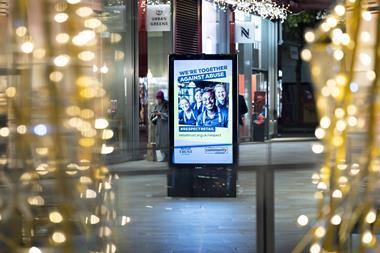
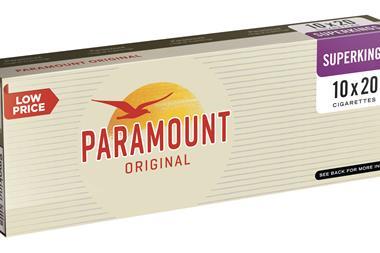
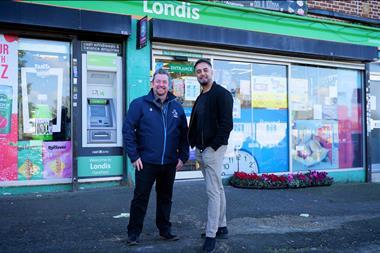
![92611-Golden-Virginia-BTO-5x40g_3D-Soft-Pack_L[39]](https://d2dyh47stel7w4.cloudfront.net/Pictures/380x253/8/9/4/340894_92611goldenvirginiabto5x40g_3dsoftpack_l39_10582.png)






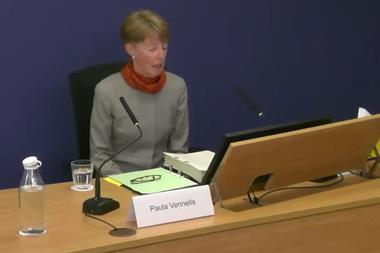
No comments yet